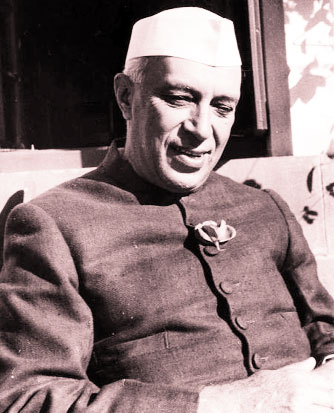The nation has much to be grateful for, much to be critical of. But we do need a calmer discourse around past leaders
In the sense of a continuum of socio-economic forces unshackled by key figures in history, Congress MP Shashi Tharoor is not entirely wrong when he says that it was Jawaharlal Nehru’s endeavour to build democratic institutions and infuse a spirit of egalitarianism in the body politic which provided an opportunity for, in Tharoor’s words not ours, even a “chaiwala to become Prime Minister” exactly 50 years after the passing away of India’s first Prime Minister. UPA chairperson Sonia Gandhi followed this up on the eve of Nehru’s birth anniversary on November 14 by asserting that the current ruling dispensation was out to wreck Nehru’s legacy. Neither star-struck hagiographies nor mindless demonising of one of the towering political personalities and public figures of 20th century India, however, does the man justice.
So, let’s undertake a quick review of the four meta issues, as it were, on which Nehru cops most criticism: His allegedly cavalier approach to national security including Kashmir, his foreign policy priorities which elided the threat posed by China, his economic policies underpinned by a socialist command-and-control philosophy and his secular politics which while taking on obscurantism within the majority community failed to address the fundamentalist warp and woof of minority politics. On national security, the flak Nehru draws is disproportionate. Yes, he should have been more hard-nosed about Jammu and Kashmir and integrationist in his approach as far as Valley Muslims were concerned, especially after Sardar Patel had managed the crucial accession so admirably, but to accuse the man who kept a multi-ethnic, multi-faith, multi-linguistic post-colonial nation-state from Balkanisation and ensured its territorial integrity was by and large kept intact through the nascent phase of the construction of a modern Indian state is to be terribly unfair. Nehru’s foreign policy priorities, especially his adherence to non-alignment reinforced by the 1955 Bandung Conference, were, whether ideal or less-than-ideal in retrospect, in the national interest. Of that there can be no doubt. How he defined the national interest is, of course, up for debate but abuse has no place in that discourse. Even on China, as some recent books have brought out, the first Prime Minister was not the woolly-headed, naïve socialist as he is sometimes caricatured. Though the 1962 debacle is correctly characterised as his biggest failure as PM and most of the flak he draws is well-deserved, it must be remembered that Communist China and its expansionist designs were not as apparent then as they are today and Chinese perfidy not to mention an India that did not have the economic heft and military infrastructure to stand up to its northern neighbour both played a role in the disaster.
On economic policy, which led to the infamous Hindu rate of growth for nearly five decades after Independence, Nehru does have a lot to answer for. Not for the first decade or so after 1947 when the country needed capacity-building and industrialisation and a centralised command economy was probably, all things considered, the only viable route of achieving that objective. But for ignoring the warning signals towards the latter part of his tenure as crony socialism, corruption and de-growth stared India in the face but the economy continued to be guided by doctrinaire, ideological commitments even when clearly divorced from the reality on the ground. It is, however, ‘secularism’ which is the most contested and contentious aspect of the Nehruvian legacy. While we need to applaud his courage in siding with reformers within the Indic dharmic tradition and pushing through progressive legislation relating to the Hindu community, his abysmal surrender to the mullahs and padres when it came to reform in Abrahamic religions is incomprehensible to genuine liberals even today. The rather weak defence that he was a creature of his times (who isn’t?) leads us to the conclusion that he had swallowed whole the knowledge claims of secularised Christian i.e. Western social sciences which made no distinction between religions qua religions and the Indic civilizational tradition which had been classified as a ‘religion’ by the British colonial rulers and earlier invaders only to make it fathomable for themselves. If anyone could have seen past it, it was Nehru. The abiding disappointment remains that he didn’t.


























